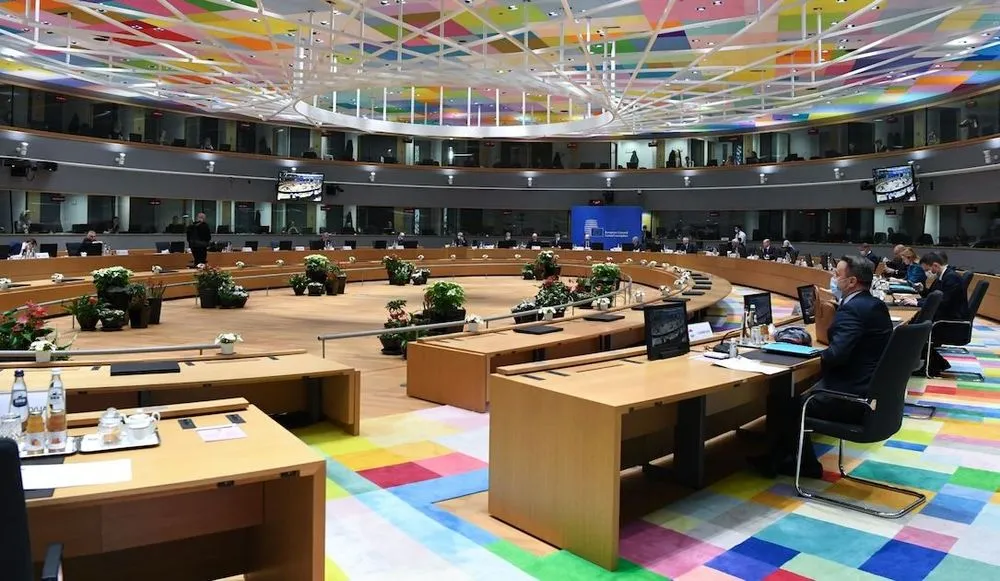EU issues first-ever sanctions over ‘Russian hybrid threats’
The European Council announced on Monday it was sanctioning 16 individuals and three entities “responsible for Russia’s destabilising actions abroad.”
It is the first time the bloc’s political executive is issuing sanctions under powers established in October. When the powers were agreed, Brussels said they were a response to the Kremlin’s “intensifying campaign of hybrid activities” targeting member states and partners.
The sanctions aim to impact a wide range of actors, from those involved in GRU Unit 29155 — a Russian military intelligence unit that has been accused of cyberattacks and assassinations — through to other intelligence agency staff and private individuals involved in spreading Russian propaganda both in Europe and Africa.
Among the individuals being sanctioned for propaganda are Sofia Zakharova and Nikolai Tupikin, both of whom have been linked to the Doppelgänger influence campaign by a U.S. Department of Justice affidavit.
The sanctions also target several people involved in “a Russian intelligence operation against the German Federal Intelligence Service (BND) in which highly classified information was passed to the FSB,” including Vladimir Sergiyenko, an aide to a far-right German politician.
“Lastly, the Council also targeted collaborators of the Government of the Russian Federation in France: Alesya Miloradovich, a Russian government employee, and Anatolii Prizenko, a Moldovan businessman who coordinated the dispatch of several Moldovan citizens to France in October 2023,” it stated.
The individuals and entities that have been sanctioned will be “subject to an asset freeze and EU citizens and companies will be forbidden from making funds available to them. In addition, natural persons will also be subject to a travel ban, which will prevent them from entering or transiting through EU territories.”
In his statement when the powers were first agreed, the then European Council’s high representative, Josep Borell Fontelles, said the bloc had “detected an increasing number of a broad range of activities” intended to “divide … destabilize and weaken the EU.”
Borell — who had issued a very similar condemnation before — said these activities have included cyberattacks, information and influence campaigns, as well as “cases of arson, vandalism and sabotage, including against our critical infrastructure.”
Russia was also accused of instrumentalizing migrants to disrupt the bloc, as well as disrupting satellite communications, violating European airspace, and attempting to “conduct physical attacks against individuals on the territory of the EU.”
It remains to be seen how effective the EU’s response will be. Despite the intentions of its sanctions regime, questions have been raised about the EU’s capability to effectively attribute and respond to hostile foreign activities, particularly its failure to coordinate measures with those taken by partners such as the United States and United Kingdom.
Earlier this year, the European Council blamed a “clerical error” after identifying the wrong Russian intelligence agency in a formal sanctions notice over a series of cyberattacks targeting member states alongside Ukraine. The mistake highlighted several discrepancies between the EU’s approach and that of the Five Eyes intelligence alliance.
Similar concerns about Russian hybrid activity have been raised by the North Atlantic Council, NATO’s political executive, which said earlier this year that the alliance was “deeply concerned about recent malign activities on Allied territory, including those resulting in the investigation and charging of multiple individuals in connection with hostile state activity.”
NATO subsequently announced it would adopt a range of measures to address hostile Russian activities including sabotage and spying, most of which seem modeled on the British response to Russian intelligence operations.
Alexander Martin
is the UK Editor for Recorded Future News. He was previously a technology reporter for Sky News and a fellow at the European Cyber Conflict Research Initiative, now Virtual Routes. He can be reached securely using Signal on: AlexanderMartin.79



